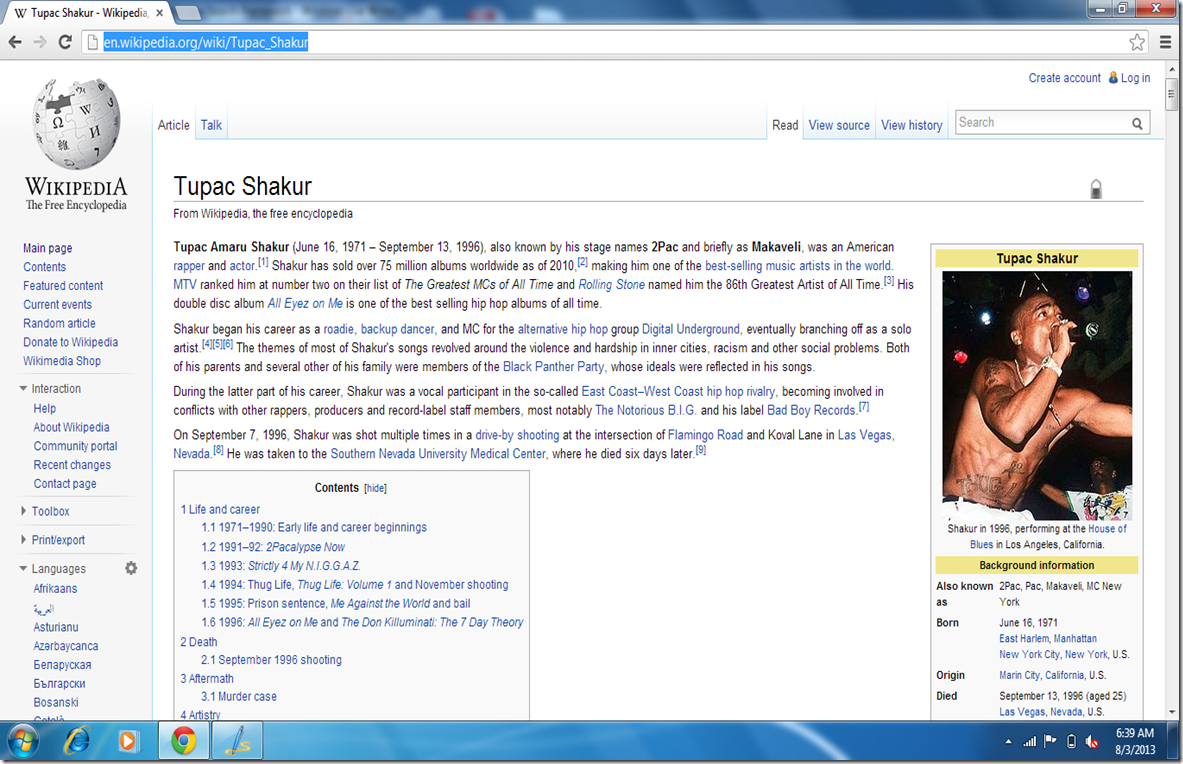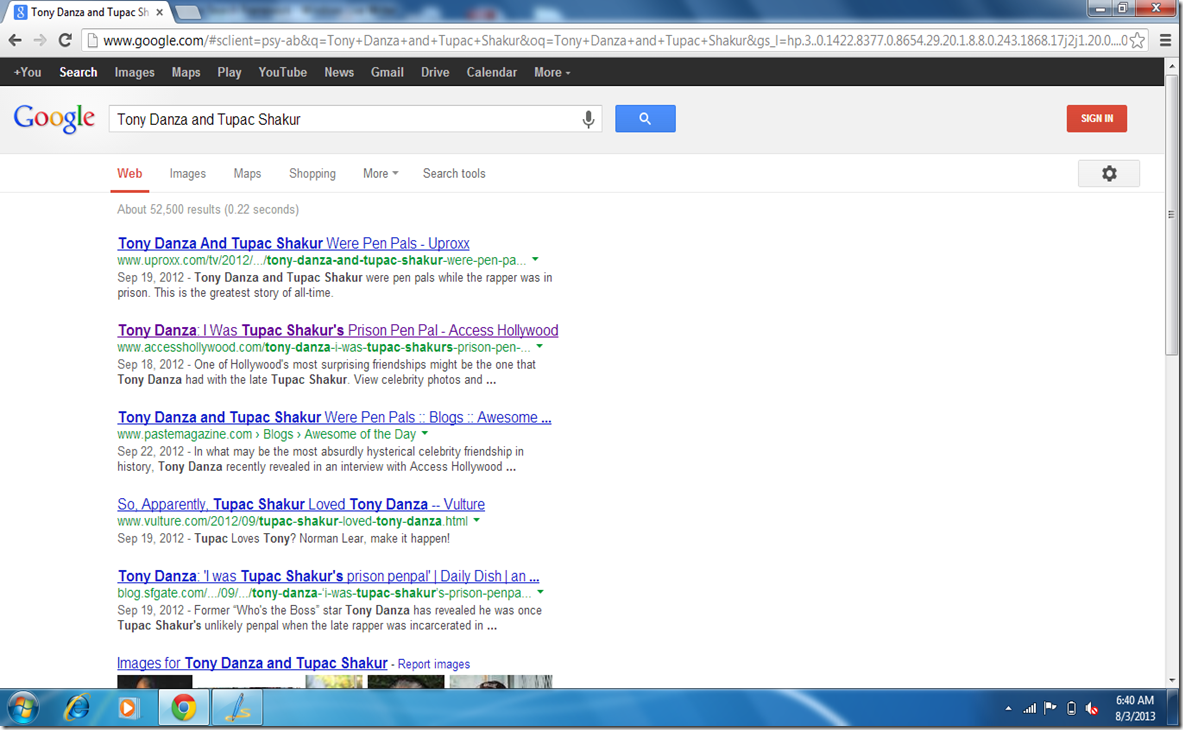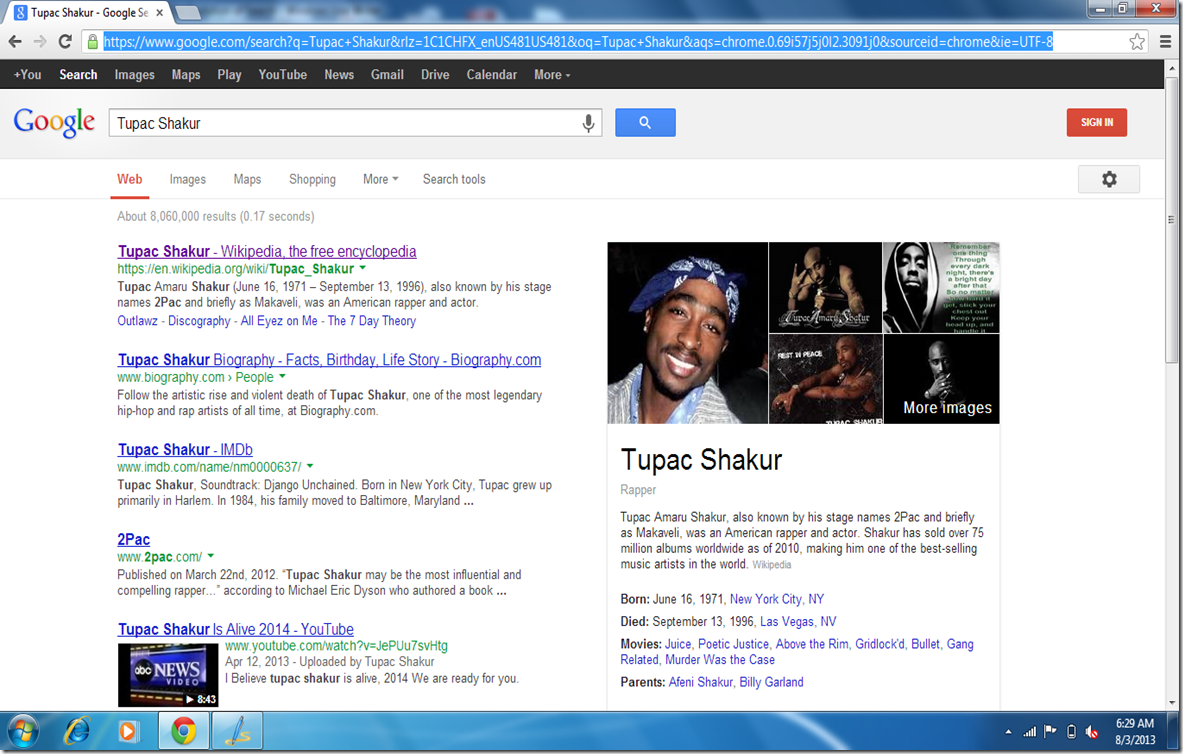It just dawned on me the other day that I now have a new search framework for specific topics I want to know more about (information only, not commerce search). It has become a three pronged approach, and surprisingly Google only plays the primary role in 1 of the 3 steps
Step 1: For a topic I don’t know much about, Step 1 typically leads to Wikipedia. I may do a Google Search, but Wikipedia is often among the first 1 or 2 results and the one either by habit or trust, I’ll go to first to get the background on the topic. Sometimes I’ll go straight to Wikipedia, sometimes I’ll do a Google search, but I’ll end up at Wikipedia.
Step 2: After getting the background on the topic, I may go back to the Google results to see a recent article about it or add an additional, more specific qualifier to the topic to narrow the scope. Usually, the results are from within a few weeks or months and from a media site or a blogger written in an article form. This will give me more recent context on the basic background I learned from Wikipedia.
Step 3: To read what people are actually saying about the topic today or at the time, I’ll go to Twitter to do a search. Short snippets in 140 characters, it will give me a generally more real-time, collective view of the sentiment of what I’d consider the mainstream.
Here’s a recent example. I happened to be flipping through the channels while watching television and I ended up on a documentary on the late rapper Tupac Shakur. I caught in mid-program an interview with Shakur when he was alive talking about his time in jail and a friendship that formed with actor Tony Danza. An unexpected, delicious side note to the documentary that piqued my interest and something I’d want to share with others.
I went online and did a search on Tupac and ended up on Wikipedia and learned when he was in jail and why exactly he was in jail. I had forgotten and wanted that baseline knowledge.
Then I looked at articles where Danza talks about his pen pal friendship with Tupac; these articles were written after the documentary aired to highlight an unknown and unexpected friendship between two seemingly opposite, far flung people. The article cites quotes directly from Danza talking about their friendship.
Then I went to Twitter to see what others were saying about this; this most certainly had to be unexpected and ironic to others just like it had been to me. And of course, there it was, tweet after tweet, dialogue by mainstream people and fans commenting on the surprise and total delight on such an unexpected friendship. This gave me confirmation on the sentiment of this particular topic.
So, here’s my 3 pronged Search Framework in Summary:
1.
Wikipedia- Establish Baseline knowledge
2.
Google- Further Context from Professionally written recent, but not always real-time, articles
3.
Twitter- Often Real time Confirmation and Sentiment from Today’s Mainstream.
Google can’t be satisfied with being only in the middle of the three steps. They want to keep users engaged on their properties for as long as possible. The longer they have engaged users, the more relevant ads they can serve to their users, and the more they will know about the interests and behaviors of their users.
Google already shows their own Wikipedia type search result for topics on the Google search page on the right, although a Wikipedia link is often the first result on the left. Here’s what a Tupac Shakur search on Google looks like:
I’m sure this is to keep users away from Wikipedia—for me, this generally hasn’t happened, but in some basic searches it has kept me on Google and away from Wikipedia. The third step for Google is much harder; Twitter is a now an established media channel on its own, Google can’t easily replicate this. Twitter used to allow Tweets to show up in Google search results, but no longer (although there are ways to add that capability to Google.) Twitter is gearing up for an IPO and appears to be on an independent path. But it wouldn’t surprise me if Google actually pays the billions to acquire Twitter and integrate this element of search directly into Google. It would be expensive, a recent valuation of Twitter has it $10 billion. That’s a large price to pay and something they ought to have done much earlier if they were to do it. But it’s certainly something they will have to consider if this framework increasingly becomes a default search system of the Internet.










Leave a comment